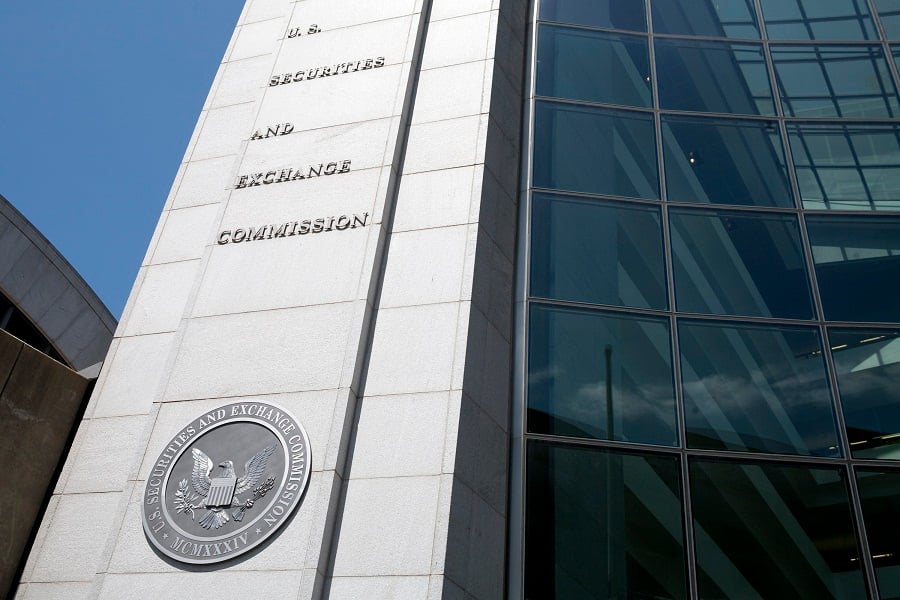

The Securities and Exchange Commission warned investment advisers and brokers on Wednesday to beef up their monitoring of fees and expenses and increase supervision of personnel and handling of client assets due to challenges posed by COVID-19.
In a risk alert, the SEC’s Office of Compliance Inspections and Examinations said it has observed a number of pandemic-related compliance issues and recommended that financial firms consider changing some operational practices to address them.
For instance, the agency said market volatility and financial pressure on firms may be increasing conflicts of interest, such as recommending inappropriate rollovers from company retirement plans to individual retirement accounts, borrowing or taking loans from clients or recommending high-fee investments that benefit advisers and brokers.
The alert also highlighted concerns about errors in calculating advisory fees that result in over-billing of clients.
“The recent market volatility and the resulting impact on investor assets and the related fees collected by firms may have increased financial pressures on firms and their personnel to compensate for lost revenue,” the alert states. “While these incentives and related risks always exist, the current situation may have increased the potential for misconduct.”
The SEC told firms to identify transactions that resulted in high fees for investors and evaluate whether they were in the investors’ best interests. They also should examine risks associated with borrowing from clients.
Other areas covered by the risk alert include protection of investor assets and information, supervision of personnel, investment fraud and business continuity.
Firms should increase protections around collecting and processing investor checks and transfer requests, especially those that are received through the mail, the agency said.
“OCIE also encourages firms to review and make any necessary changes to their policies and procedures around disbursements to investors, including where investors are taking unusual or unscheduled withdrawals from their accounts, particularly COVID-19 related distributions from their retirement accounts,” the risk alert states.
As firms have shifted to teleworking arrangements during the pandemic, the risk alert recommended that they modify their compliance policies and procedures to address “supervisors not having the same level of oversight and interaction with supervised persons when they are working remotely.”
The increased use of electronic communication also is putting a premium on protecting customer information.
“OCIE recommends that firms pay particular attention to the risks regarding access to systems, investor data protection, and cybersecurity,” the alert states.

By listening for what truly matters and where clients want to make a difference, advisors can avoid politics and help build more personal strategies.

JPMorgan and RBC have also welcomed ex-UBS advisors in Texas, while Steward Partners and SpirePoint make new additions in the Sun Belt.

Counsel representing Lisa Cook argued the president's pattern of publicly blasting the Fed calls the foundation for her firing into question.

The two firms violated the Advisers Act and Reg BI by making misleading statements and failing to disclose conflicts to retail and retirement plan investors, according to the regulator.

Elsewhere, two breakaway teams from Morgan Stanley and Merrill unite to form a $2 billion RIA, while a Texas-based independent merges with a Bay Area advisory practice.
Orion's Tom Wilson on delivering coordinated, high-touch service in a world where returns alone no longer set you apart.
Barely a decade old, registered index-linked annuities have quickly surged in popularity, thanks to their unique blend of protection and growth potential—an appealing option for investors looking to chart a steadier course through today's choppy market waters, says Myles Lambert, Brighthouse Financial.
